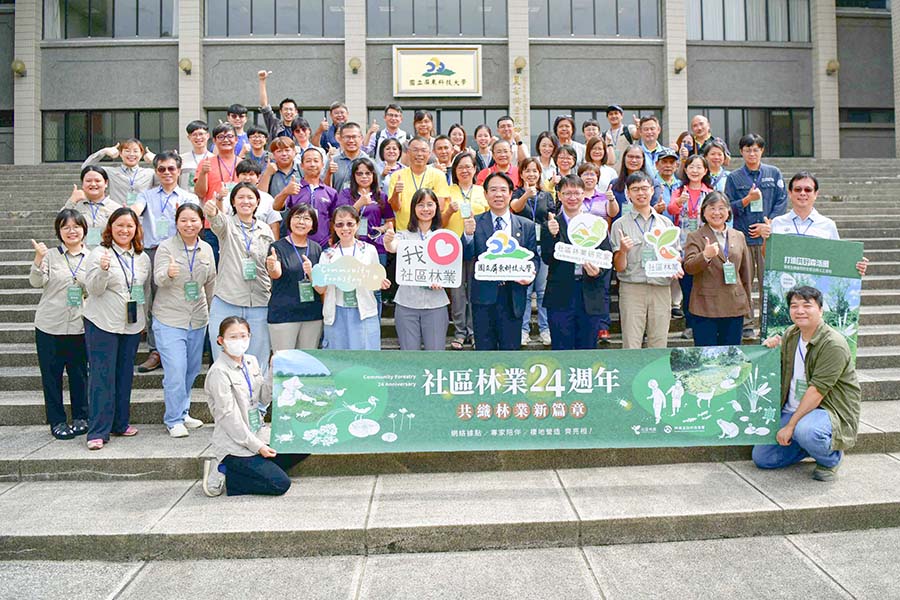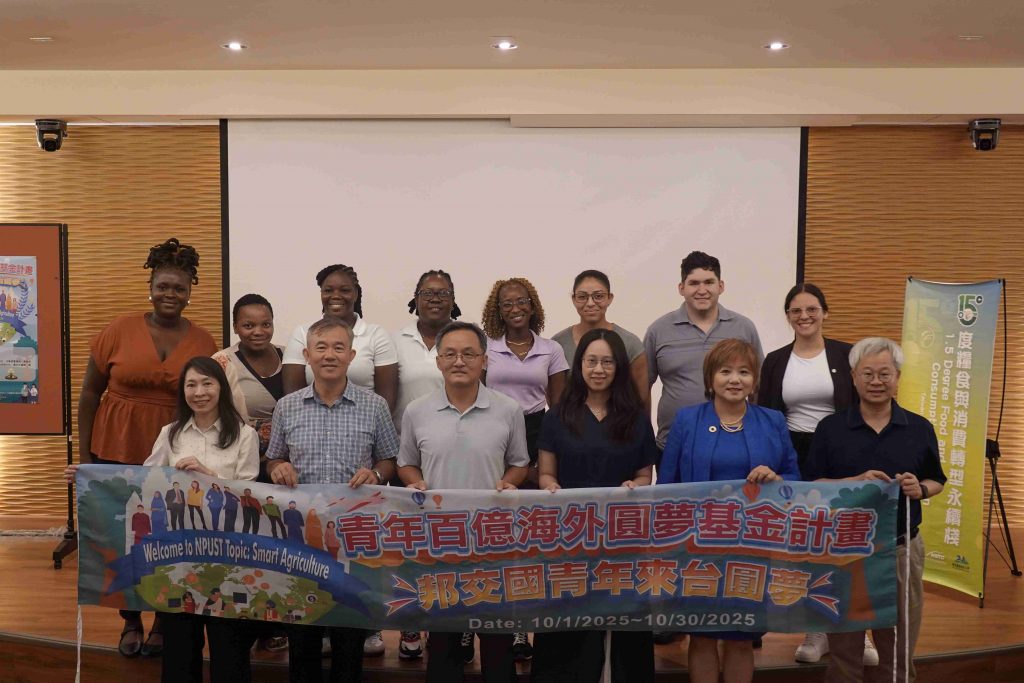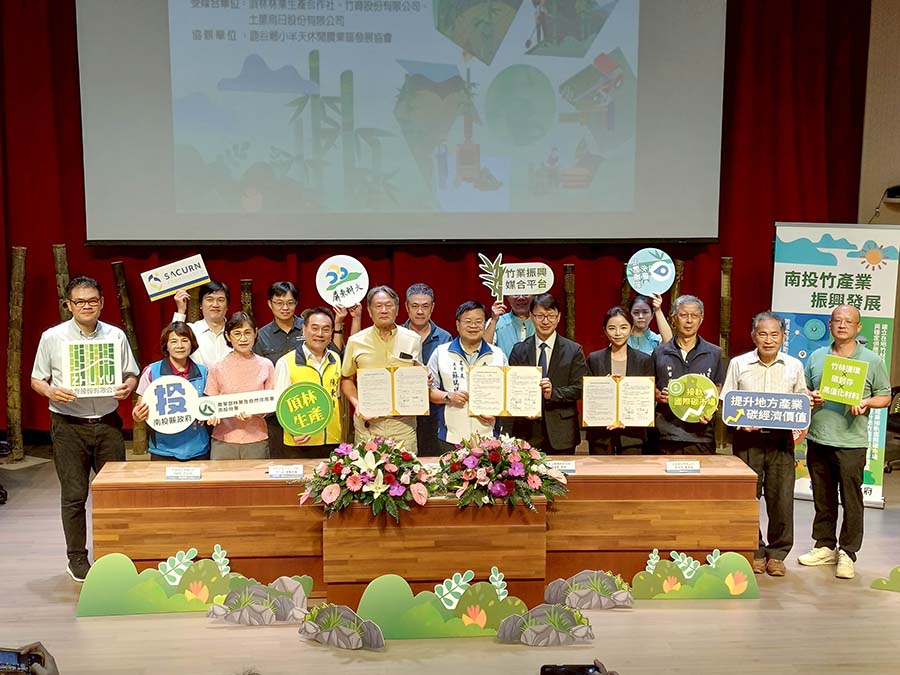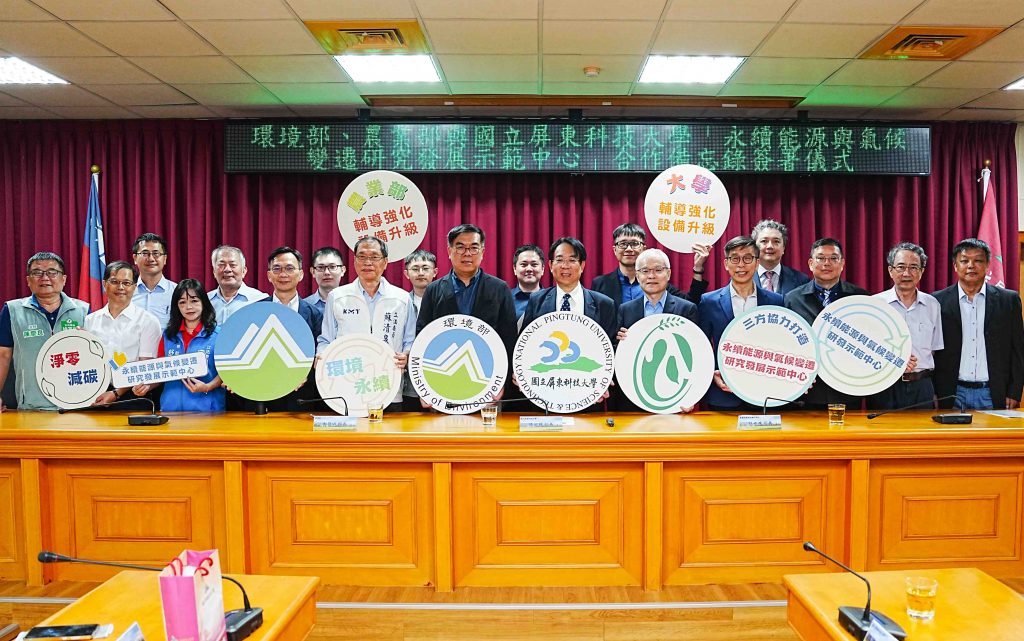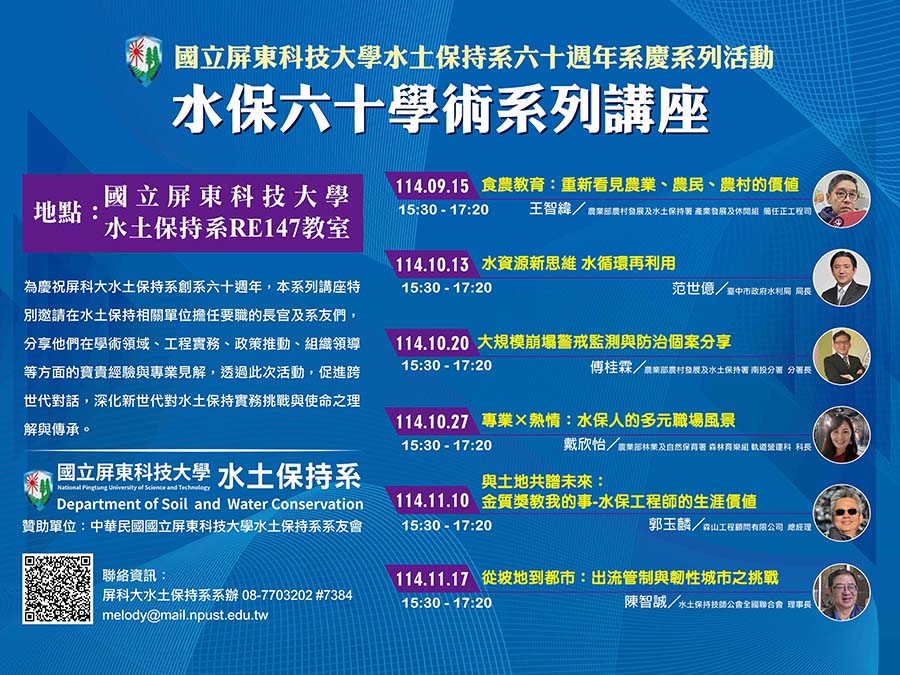2025-10-22
National Pingtung University of Science and Technology (NPUST) and the Forestry and Nature Conservation Agency (FANCA) celebrated the 24th anniversary of Taiwan’s Community Forestry program on October 22 (2025). The event, themed “Weaving a New Chapter for Community Forestry,” was held at the PIN Ideas Lab in the NPUST Library and Conference Hall, and featured the announcement of three major milestones in the march toward sustainability.
The event brought together community representatives, academic experts, and partners from public and private sectors to witness the program’s evolution towards “accompaniment, connection, and co-creation”.
THREE MAJOR MILESTONES
The debut of the “Community Forestry Professional Accompaniment Team” marks the first major achievement in the project. This team comprises 120 experts from five key domains: government agencies, academic research units, NPO/NGOs, businesses, and local community leaders.
The team’s core mission is rooted in the spirit of “accompaniment” and will focus on providing comprehensive professional advice and conducting practical exchanges to assist local communities in all aspects of community forestry—from ecological surveys and habitat restoration to operational management and local revitalization.
Speakers who shared some of their expert insight included Dr. Ya-Ling Huang, Associate Researcher at the Ministry of Agriculture’s Kaohsiung District Agricultural Research and Extension Station, Vice President Wen-Ling Shih of NPUST, and Chen-Ju Wang, Executive Director of Deep Roots Community & Culture Studio. This team of experts is working to combine indigenous knowledge with modern technology and lead greater social innovation by embodying the principles of the Satoyama Initiative.
The second major milestone the project has recently attained is the completion of the nationwide network of Community Forestry Centers. This development came about with the recent addition of three new network hubs:
Yingshi Community Development Association in Datong Township, Yilan County.
Hushan Reservoir Cultural and Ecological Protection Association in Yunlin.
Dongshi Creative Execution Association (Damaupu Survey Team) in Taichung City.
With these additions, the network now encompasses nine locations, covering all eight of FANCA’s branch jurisdictions. This nationwide network of hubs will work to facilitate regional exchange and collaboration, while sharing best practices and nurturing local talent. Together, they will make “mutual assistance and shared prosperity” the new norm for community forestry.
The third major announcement was the publication of the handbook, Creating a Space for Shared Prosperity: Building Vibrant Ecological Ponds and Constructed Wetlands. This publication synthesizes years of field practice and local wisdom, providing a comprehensive record of Taiwan’s habitat creation experience, from ecological observation and native plant selection to engineering construction and ongoing maintenance. The handbook serves as both a technical guide and a testament to the spirit of co-learning and co-prosperity between people and the environment.
COMMITMENT TO SUSTAINABLE DEVELOPMENT
NPUST President Chin-Lung Chang highlighted the role the university has been playing with respect to the promotion of community forestry and sustainable development in mountain villages since establishing the Community Forestry Center in 2017. He stressed the university’s commitment to university social responsibility (USR) and the way it is using professional teams to meet local development needs, foster talent, and collaborate with FANCA, other government agencies, and communities to enhance teaching, research, and economic returns for society.
Dean of the College of Agriculture, Yi-Hsien Lin, affirmed the long-term dedication of the team led by of the Department of Forestry Professor and Director of the Community Forestry Center, Mei-Hui Chen. Professor Chen remarked that “community forestry is not just a conservation project; it is a sustainable path that unites people. From forests to wetlands, every community’s effort is an important step toward Taiwan’s sustainability. We hope to empower communities through professional accompaniment, network connections, and knowledge sharing to achieve self-reliance and co-existence—jointly creating a sustainable living space among the mountains, rivers, and the sea.”
Moving forward, the Community Forestry Center and the FANCA are committed to deepening cross-sectoral collaboration, connecting public and private sectors and local communities, conducting academic research, and ensuring that professional knowledge and local practices can be used for mutual enrichment and the development of a truly sustainable society.

